Thank you to all who submitted proposals for Cannexus24.
The Cannexus24 Call for Presenters closed on June 2, 2023.
If you still wish to submit using the Proposal form, your session will be added to a wait list and you’ll be contacted if a presentation slot becomes available.
Submission Deadline: Friday, May 31, 2024 at 11:59 pm ET
CERIC invites individuals or organizations with an interest in presenting at the annual Cannexus conference to submit a brief session outline for consideration using the Proposal Form and encourages you to inform colleagues or students of this opportunity.








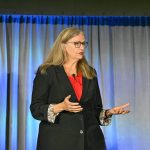
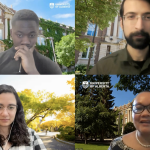



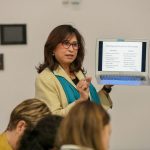




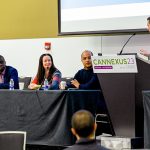





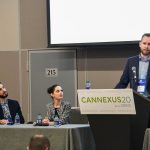


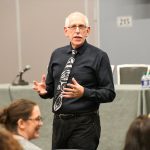
CERIC is thrilled to open its Call for Presenters for Cannexus25 to anyone who wants to inspire the career development community to reflect, celebrate and dig into new trends.
Presenting at Cannexus provides you with an unmatched opportunity to exchange information and explore unique and effective approaches in the areas of career counselling and career and workforce development. The conference brings together 2,000 people across Canada and the world!
Cannexus speakers are researchers and practitioners from universities, schools, community agencies, governments, private practices and corporations. We strongly encourage proposals from individuals from equity-deserving groups, including Indigenous, racialized, 2SLGBTQIA+ and people with disabilities.
Speakers and attendees are professionals in career and workforce development and related fields who are forward-thinkers with fresh and impactful ideas and projects to convey.
Our goal is to ensure that Cannexus includes a well-balanced mix of high-quality sessions that will meet the diverse interests of delegates.
This year, we will be selecting approximately 100 submissions for the program, so here is what you need to know to make the most of your proposal:
Application of Research and Career Theories: Career theories, evidence-based career development practice, and research and evaluation methodologies
Effective Career Counselling and Coaching: Up-to-date coaching and career counselling techniques, strategies, skills and ethics; innovative, client-centred approaches for supporting career management and transitions; virtual career services
Empowering Jobseekers: Supporting clients to navigate all aspects of job search, including resume and cover letter writing, mindsets, networking and interview preparation, social media
Global Perspectives on Career Development: Career and workforce development practices, programs and policies from outside of Canada
Trauma-Informed Practice: Skills and strategies to support individuals who may have a history of trauma and to build trauma-informed workplaces
Career Education K-12 Students: Curriculum development, partnerships and programs, school/guidance counselling, role of principals and school board, educational planning and financial considerations
Career Education Post-Secondary: College and university career services, career-related learning in the classroom, career literacy development, financing of studies, post-secondary transitions, alumni engagement
Experiential/Work-Integrated Learning: Development, delivery and impact of experiential and work-integrated learning opportunities (e.g. co-op, internships) in K-12 and post-secondary
Trades & Vocational Education: Educational programs, training and apprenticeship opportunities to support individuals seeking to practise a specialized trade or occupation
Career Centre Leadership & Management: Organizational leadership and change management, team management, program development, and recruitment and succession planning for career centre directors and managers
Career Development Sector Evolution & Advocacy: Sector visibility, policy advocacy, sustainability strategies, professionalization of the sector (including certification)
Indigenous Career Development: Indigenous career and workforce development programs, Indigenous worldviews relating to work and career, decolonizing career development, community engagement
Intersectional Service Delivery: Inclusive career services and advocacy that reflect understanding of the multiple identities clients can hold and how they intersect, supporting multi-barriered clients
Mature Worker Career Development: Career management and job search for clients 50+, retirement planning, ageism, post-retirement employment
Rural and Remote Career Development: Rural/remote career and employment services as well as employment and educational opportunities/challenges, community economic development
Social Justice, Equity, Diversity and Inclusion: Equitable workplaces & career services, inclusive leadership, social justice, decent work, supporting equity-deserving groups (e.g. 2SLGBTQIA+, neurodiverse or racialized individuals)
Supporting Clients with Disabilities: Disability-inclusive employment and hiring, workplace and job search accommodations, accessibility of services and workplaces, disclosure, understanding invisible and visible disabilities, vocational rehabilitation
Working with Immigrants and Refugees: Career development and workforce integration strategies and programs, cultural responsiveness, career challenges, immigration policy, qualification recognition, international students
AI, New Technology & Tools: Technological trends affecting career development, including artificial intelligence; digital tools for career services
Future of Work: Macro-level shifts affecting the future landscape of work, education and career development (e.g. climate change, demographic shifts, economic precarity)
Labour Market Information: Identifying and leveraging LMI (e.g. occupational and sector outlooks, economic trends, salary information, gig economy data) to support informed career decision-making
Adult Learning and Career Development: Principles and best practices, lifelong learning, micro-credentials, supporting adults to pursue education/training, return-to-work/school, tools and assessments
Career Development for Youth Outside of School: Youth engagement; initiatives promoting youth development, empowerment and career planning outside of schools, including NEET (not in education, employment or training) youth
Employment/Training Programs: Best practices and innovations in developing and delivering employment/training programs, adapting to government policies and priorities, funding and evaluation, partnership development
Entrepreneurship & Self-employment: Small business development and support for clients and/or CDPs, non-traditional employment pathways, entrepreneurial mindset
Mental Health & Well-being: Supporting mental health and well-being for clients and/or CDPs, identifying appropriate supports for clients, self-care and resilience
Employer Engagement: Developing partnerships with employers to support and build awareness of career development programming, career education and learner/jobseeker success
Workforce Development: Programs, innovations and best practices, including collaborations, strategies and skills training to meet evolving industry needs; job development
Workplace, HR and Employee Career Management: Employee recruitment, retention and career management; integrating career development into HR; workplace shifts and trends; intergenerational workplace
Learn more about Cannexus, including who attends, on the About Cannexus page. Have questions? Contact the Conference Planning Co-ordinator, Heba Elhalees at heba@ceric.ca.
